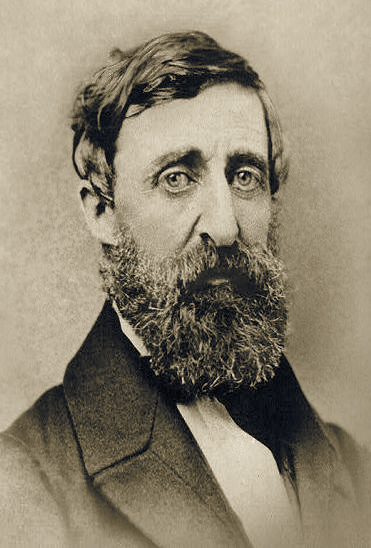Nick
Catalano is a TV writer/producer and Professor of Literature
and Music at Pace University. He reviews books and music for
several journals and is the author of Clifford
Brown: The Life and Art of the Legendary Jazz Trumpeter,
New York
Nights: Performing, Producing and Writing in Gotham
, A
New Yorker at Sea,, Tales
of a Hamptons Sailor and his most recent book,
Scribble
from the Apple. For Nick's reviews, visit his website:
www.nickcatalano.net
“The world is too much with us . . . getting and spending
we lay waste our powers,” wrote William Wordsworth some
200 years ago before the Industrial Revolution. What would he
think about human activity presently when most people work 70-80
hour weeks and never question the addictive consumerism that
eats away at the soul.  There
are 168 hours in a week and working only for money half of that
time would cause great cultures of the past i.e. ancient Greece
to laugh out loud. The father of existentialism Soren Kierkegaard
wrote, “ Of all the ridiculous things the most ridiculous
seems to me, to be busy.”
There
are 168 hours in a week and working only for money half of that
time would cause great cultures of the past i.e. ancient Greece
to laugh out loud. The father of existentialism Soren Kierkegaard
wrote, “ Of all the ridiculous things the most ridiculous
seems to me, to be busy.”
 Henry
David Thoreau wrote, “ Rather than money . . . give me
truth,” and “The mass of men lead lives of quiet
desperation.” Bernard Moitssier wrote, “How long
will it last this peace I have found at sea? It is all of life
that I contemplate -- sun, clouds, time that passes and abides.”
Henry
David Thoreau wrote, “ Rather than money . . . give me
truth,” and “The mass of men lead lives of quiet
desperation.” Bernard Moitssier wrote, “How long
will it last this peace I have found at sea? It is all of life
that I contemplate -- sun, clouds, time that passes and abides.”
These
four figures -- poet, philosopher, essayist, circumnavigator
-- have all received short shrift by historians who have painted
them all using words like recluse, monastic, anchorite, ascetic,
hermit, eremite, to totally account for their lives and occupations.
In truth all spent much of their time with busy urban affairs,
multi-tasking practical duties, engrossing journeys, and vigorous
social contact. Wordsworth traveled all over Europe and was
Poet Laureate of England; Kierkegaard held court in Copenhagen,
was a successful academic, enjoyed financial independence, and
dallied with the ladies. Thoreau was quite social when living
at Walden pond often walking a few times a week to urban Concord
Mass. less than 2 miles away.  Bernard
Moitessier, least known of our figures, spent more time alone
at sea than any sailor you can name, but had multiple marriages,
collegial writing relationships and urban publishing activity
spending considerable time as an environmental activist.
Bernard
Moitessier, least known of our figures, spent more time alone
at sea than any sailor you can name, but had multiple marriages,
collegial writing relationships and urban publishing activity
spending considerable time as an environmental activist.
Yet
because all of them became famous in their ‘alone’
time we have always focused on this characteristic and failed
to indicate their often ‘busy’ lifestyles. In point
of fact these figures chose to quarantine themselves because
they realized that that was the only way they could achieve
their aforementioned disparate goals.
Now
because of the coronavirus millions of people have been forced
to quarantine. And because of years long 70-80 hour work schedules
many are suffering huge disorientation. We are all shaped by
conditioned behaviour as Pavlov, Skinner and others have shown
and “rebehaviourizing” is challenging. As Nick Martin
puts it, “Believing that each waking hour must be a productive
one is the natural endpoint of America’s hustle culture
-- the idea that every nanosecond of our lives must be commodified
and pointed toward profit and self-improvement.”
Because
of this disorientation few have been able to perceive the fact
that quarantining can uncover urges and talents that they have
had all their lives. And ironically, some of this uncovering
can now be achieved only because of the singular essence of
pandemic quarantine.
 In
the past, pandemic forced quarantining has produced astounding
results. In 1593 William Shakespeare had to quarantine in London
due to an outbreak of Bubonic plague. When the death toll exceeded
30 per week the theaters were closed thus requiring the young
Bard of Avon to isolate himself. Health care workers tending
to the sick had to carry a wand or a rod to make sure Londoners
gave them a wide berth. Recognizing an opportunity to get away
from his burgeoning theater obligations, Shakespeare used the
forced quarantine to write his only narrative poems -- Lucrece
and the masterful Venus and Adonis.
In
the past, pandemic forced quarantining has produced astounding
results. In 1593 William Shakespeare had to quarantine in London
due to an outbreak of Bubonic plague. When the death toll exceeded
30 per week the theaters were closed thus requiring the young
Bard of Avon to isolate himself. Health care workers tending
to the sick had to carry a wand or a rod to make sure Londoners
gave them a wide berth. Recognizing an opportunity to get away
from his burgeoning theater obligations, Shakespeare used the
forced quarantine to write his only narrative poems -- Lucrece
and the masterful Venus and Adonis.
Years later in 1606 another pandemic struck. Social distancing
had now become a rule and only six people were permitted to
attend a funeral including the pallbearers and minister. Then
as now many ignored the rules of quarantine. But not Shakespeare.
He used his time in isolation wisely and penned King Lear,
Macbeth, and Antony and Cleopatra.
In
the summer of 1665 a new pandemic broke out and a young Isaac
Newton had to leave his college dorm at Cambridge and go home to quarantine
for over a year. In isolation, his creative juices soared and
he developed the inverse-square law of gravitation, acclaimed
since as his greatest achievement. Looking back years later
he credited the quarantine as the cause of this creation. He
said “For in those days I was in the prime of my age for
invention & minded Mathematicks (sic) and philosophy more
than at any time since.”
had to leave his college dorm at Cambridge and go home to quarantine
for over a year. In isolation, his creative juices soared and
he developed the inverse-square law of gravitation, acclaimed
since as his greatest achievement. Looking back years later
he credited the quarantine as the cause of this creation. He
said “For in those days I was in the prime of my age for
invention & minded Mathematicks (sic) and philosophy more
than at any time since.”
Other
stories of pandemic quarantine abound. The painter Edward Munch,
the playwright Thomas Nashe, and the poet Giovanni Boccaccio
all attained apexes of creativity in pandemic quarantine.
In
2014 Philip Mirowski wrote, “ Never let a serious crisis
go to waste.” A recent cabinet economics expert said in
2008, “never let a big recession go to waste.” and
Psychology Today recently stated, “never let
free time go to waste.” The point here is that forced
quarantine can reveal hidden elements within us that we would
never discover otherwise . As shown above, there is evidence
that only because of pandemic quarantine astonishing creations
have occurred.
Isolation
forces us to reflect in ways that we never can in an 80 hour
work week . . . merely the act of searching our consciousness
for long buried whims, desires and dreams can produce activity
which would never be thought of without the quarantine and isolation
now present everywhere
We
are all not Shakespeares or Newtons. Actually, on a more basic
and more important level we can all benefit from quarantine
because it liberates us from the daily rat race that we undertake
instinctually and forces us to think about deeper matters. One
individual said recently about the pandemic, “ I am happier
that this happened. I think I needed to break away from my habits
of life, learn new stuff, and spend time with family.”
 The
pandemic will cause tragedy and misery for millions. And history
will correctly record that economic hardship, social disorientation
and immeasurable psychological damage are among the most significant
elements of the 2020 coronavirus quarantining.
The
pandemic will cause tragedy and misery for millions. And history
will correctly record that economic hardship, social disorientation
and immeasurable psychological damage are among the most significant
elements of the 2020 coronavirus quarantining.
But
for all there can be one redemption.
Spike
Lee recently put it simply . . . “When everything stops,
you have time to think.”